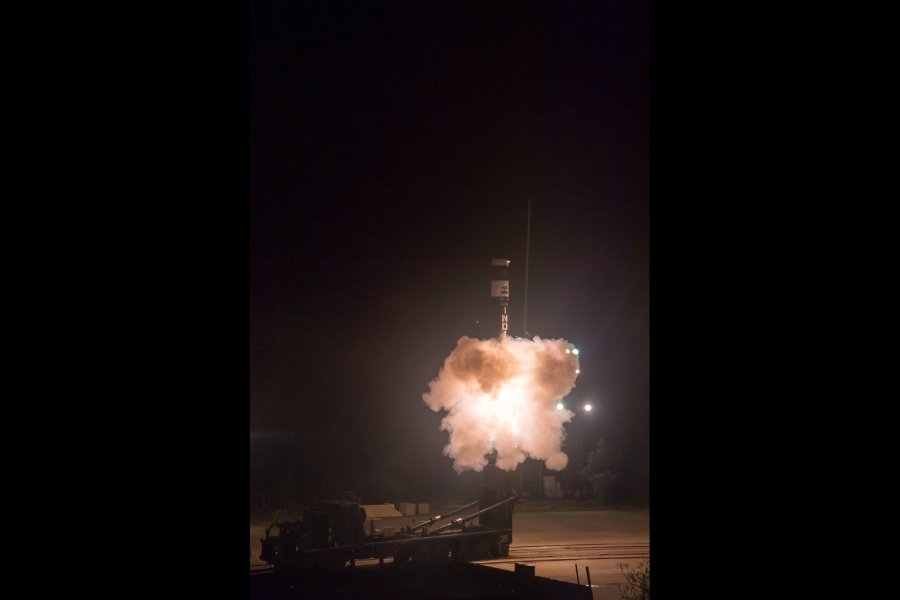India has successfully carried out a night launch of new generation nuclear capable ballistic missile 'Agni Prime' from the Abdul Kalam Island off the coast of Odisha, marking a boost to the country's strategic weaponry.
The first pre-induction night launch of the missile with a strike range of 1,000 to 2,000 km was carried out on Wednesday by the Defence Research and Development Organisation (DRDO) and the elite strategic forces command, officials said.
The defence ministry said the test-firing met all the desired objectives and that it paved the way for induction of the system into the armed forces.
The test-firing of the missile came amid India's lingering border row with China.
"New generation ballistic missile 'Agni Prime' was successfully flight-tested by Defence Research and Development Organisation (DRDO) from Dr APJ Abdul Kalam Island off the coast of Odisha on June 7," the ministry said.
"This was the first pre-induction night launch conducted by the users after three successful developmental trials of the missile, validating the accuracy and reliability of the system," it said in a statement.
Defence Minister Rajnath Singh congratulated the DRDO and the armed forces for the success as well as the "copy-book" performance of the new generation ballistic missile.
The ministry said "range instrumentation like radar, telemetry and electro optical tracking systems were deployed at different locations, including two down-range ships, at the terminal point to capture flight data covering the entire trajectory of the vehicle".
"Senior officials from the DRDO and Strategic Forces Command witnessed the successful flight-test, which has paved the way for induction of the system into the Armed Forces," it said.
Chairman of the DRDO Samir V Kamat appreciated the efforts put in by the teams of DRDO laboratories and the users involved in the test launch.
In December, India successfully test-fired Agni-V missile that can strike targets at ranges up to 5,000 km.
Agni-V can bring almost the entire Asia including the northernmost part of China as well as some regions in Europe under its striking range.
The Agni 1 to 4 missiles have ranges from 700 km to 3,500 km and they have already been deployed.
In April, India successfully carried out the maiden flight trial of an endo-atmospheric interceptor missile from a ship off the coast of Odisha in the Bay of Bengal as part of its ambitious ballistic missile defence programme.
The purpose of the trial of the sea-based missile was to engage and neutralize a hostile ballistic missile threat thereby elevating India into an elite club of nations having such a capability.
India has been developing capabilities to intercept hostile ballistic missiles both inside and outside the earth's atmospheric limits.
Except for the headline, this story has not been edited by The Telegraph Online staff and has been published from a syndicated feed.











